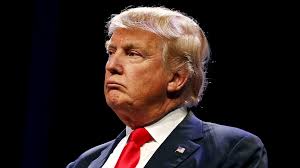US President Donald Trump has warned of tougher sanctions on Russia following its deadliest aerial attack on Ukraine since the war began.
Sunday’s strikes killed four people, including a mother and her baby. Ukraine’s main government building in Kyiv was also damaged for the first time. Officials said the attack involved at least 810 drones and 13 missiles. The assault has intensified calls for stronger Western action against President Vladimir Putin.
Trump told reporters he was “not happy with the whole situation.” While he has previously threatened harsher measures, no action followed when Putin ignored his warnings. Asked if he was ready to move to a “second phase” of sanctions, Trump replied: “Yeah, I am,” but gave no further details.
US Treasury Secretary Scott Bessent said Washington is prepared to escalate economic pressure but needs stronger European backing. In an NBC interview, Bessent said if EU nations increased sanctions and imposed tariffs on countries buying Russian oil, “the Russian economy will be in total collapse, and that will bring President Putin to the table.” He described the situation as a race between how long Ukraine’s military can hold out versus the Russian economy.
Currently, the US has imposed a 50% tariff on imports from India for continuing to buy Russian oil. Trump has suggested extending similar secondary sanctions to other nations but has not acted. European leaders are expected to visit Washington this week to discuss ways to end the war.
Ukrainian President Volodymyr Zelensky urged Europe to stop buying Russian energy entirely. He praised Trump’s tariff strategy as the “right idea” to cut Moscow’s revenue. Since Russia’s full-scale invasion in March 2022, it has earned nearly $985 billion from oil and gas, with China and India as its main buyers. The EU has pledged to phase out imports by 2027.
Despite sanctions, Russia is expanding its energy markets, including increasing gas supplies to China. Meanwhile, OPEC+, including Russia, plans to raise production. This move could lower global oil prices and complicate Western efforts to squeeze Moscow’s finances.

